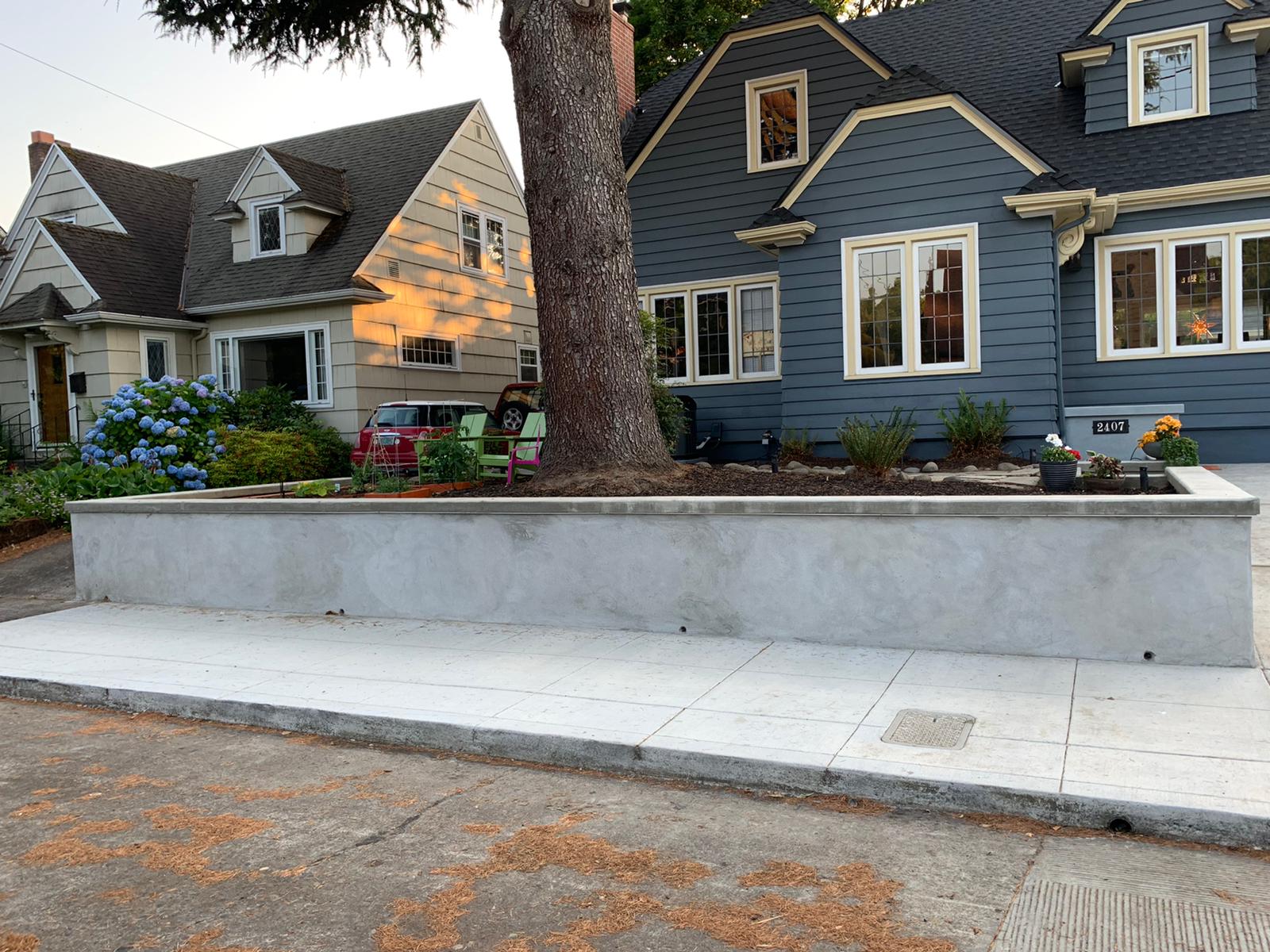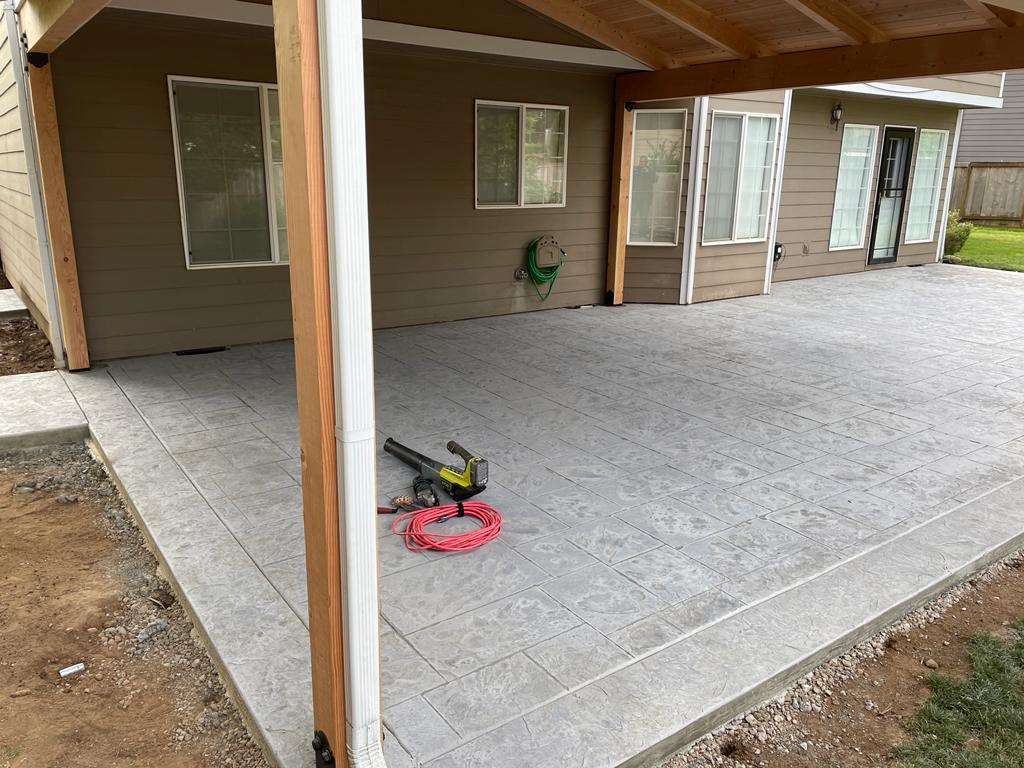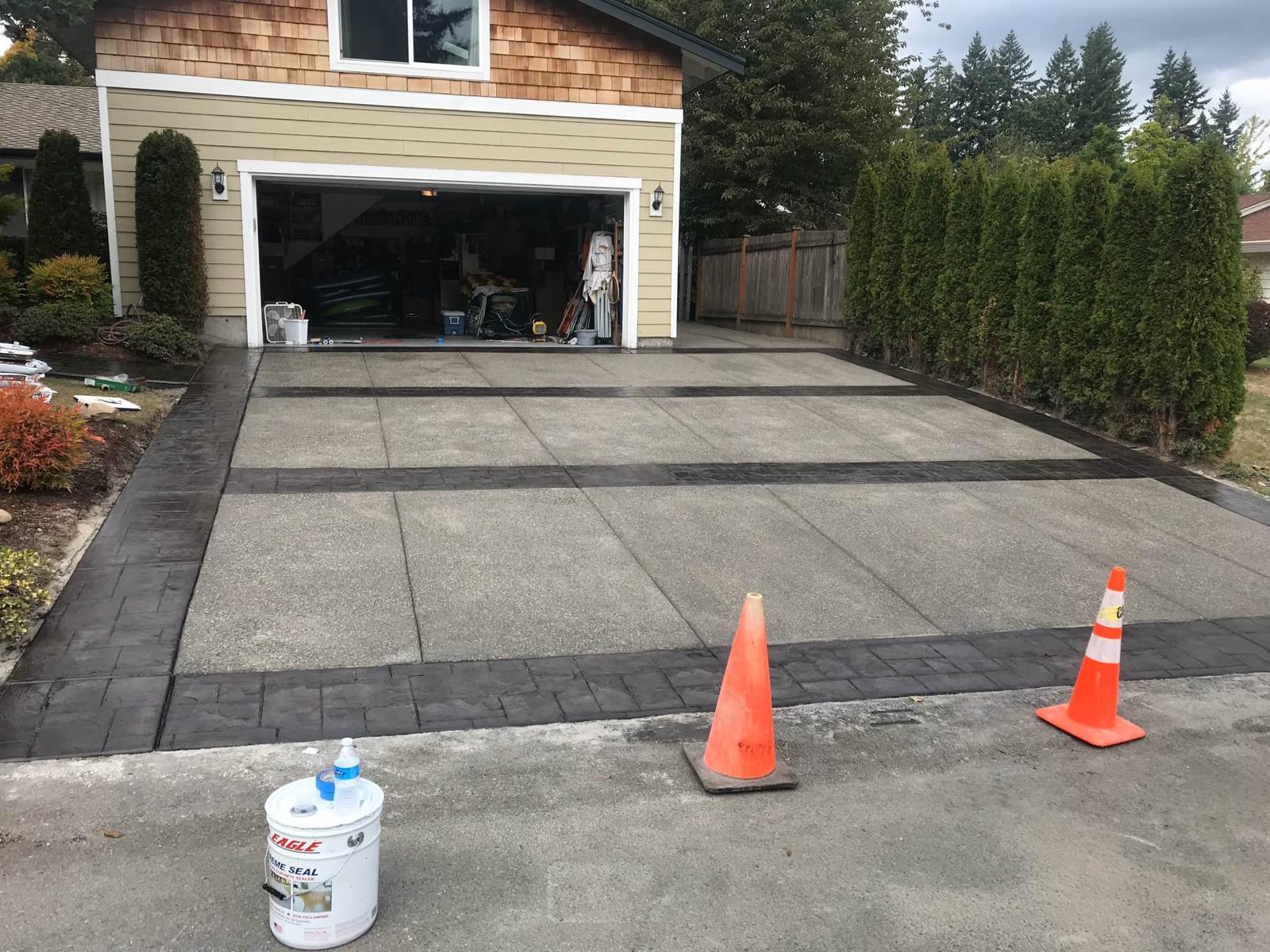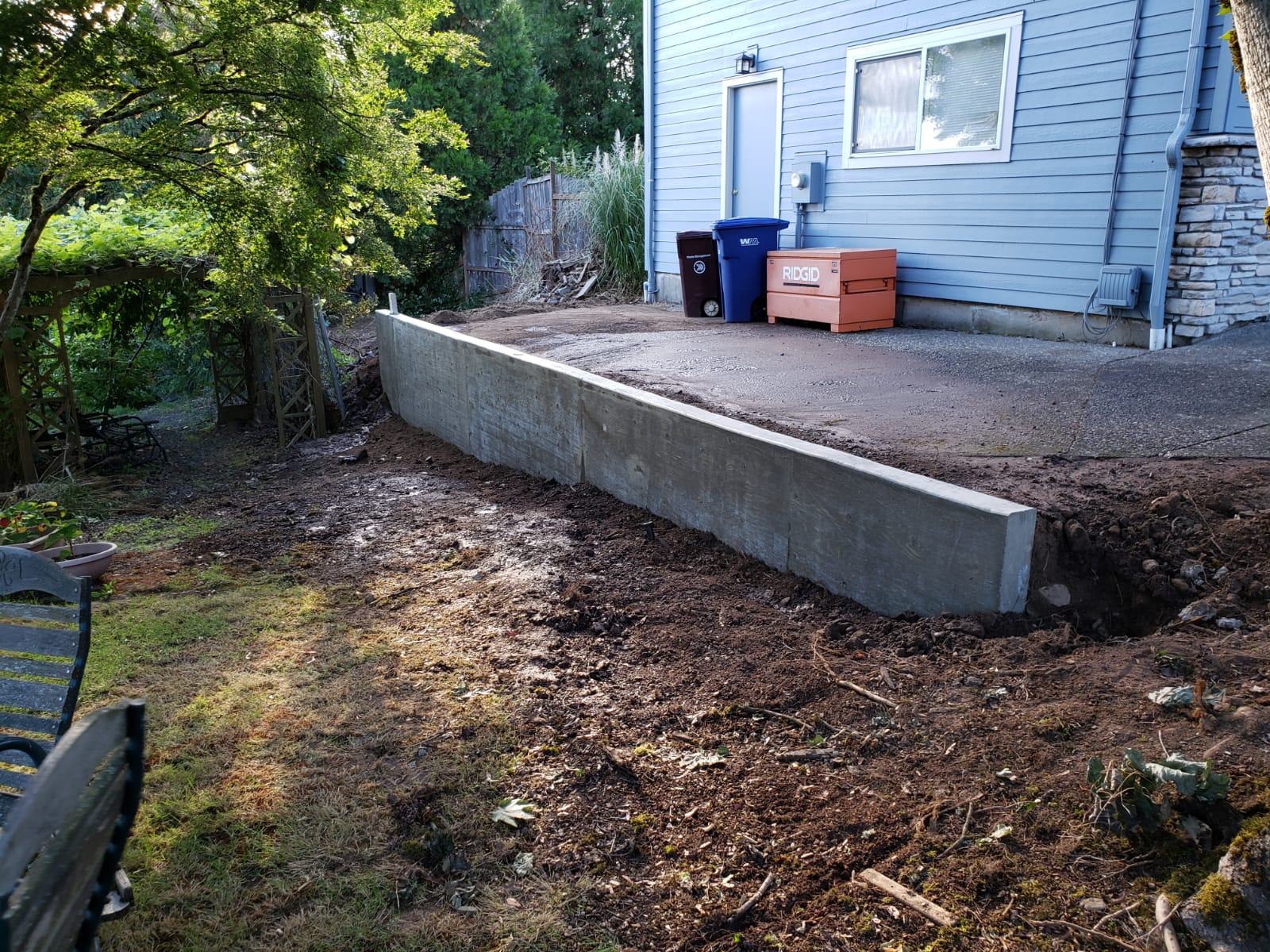Introduction:
A house or company might be seriously harmed by the rain and wind that are so frequently a feature of the local weather throughout the year. Landscaping can become less beautiful due to soil erosion, and building foundations can become more easily compromised.
If you’re having trouble solving the problem, consider using retaining walls.
Installing a long-lasting, weather-resistant, attractive retaining wall is an excellent, practical, and cost-effective solution to soil erosion. Concrete is an ideal material for constructing stable retaining walls.
Perhaps you haven’t given much thought to a retaining wall for your property. Retaining walls may have crossed your mind, but you may not know why they’re so beneficial. There’s no need to panic! We’ve compiled a list of six advantages a concrete retaining wall might provide to your home or company.
What Is a Retaining Wall?
This stone or concrete structure is used to hold soil, rocks, hardscaping, and other landscaping elements on your property. If your landscape is at risk of being washed away, retaining walls is an excellent solution. There are times when they can even save you from a lawsuit. Installing a retaining wall around your home or company has numerous advantages.
Protects soil from eroding
Soil erosion is a concern if your home or business is located near the top or bottom of a hill. Even a little hill or mound can cause substantial soil erosion with only a little weathering. Undeterred, erosion has the potential to:
- This leads to mudslides and landslides
• Relocate soil and rocks from spots where they are obstructing your property’s vital characteristics.
• Obstruct drainage systems, resulting in harm from dampness.
• Decrease the structural stability of your property
To prevent soil erosion, retaining walls keep the soil in place and prevent it from being washed away.
- Flooding risk is reduced.
Rain is expected in the Tulsa area, especially during the stormy spring. As a result, all householders should take the necessary precautions to prevent their homes from being flooded. Because of this, retaining walls can help:
• Keeping water away from your home or business establishment
• Preventing your property’s low regions from collecting water
2. Minimizes damage to nearby properties
You may not be the only one affected by soil erosion; it may also impact others. Damages caused by the collapse of a slope on your land may fall under your legal responsibility if you have one on your property. Remember:
Injuries that occur on your property can make you liable for them. Property owners in several localities face severe fines if they don’t keep their property in order.
3. Allows for the additional usable area.
If your property has a lot of hills or steep slopes, you won’t be able to use them as they are. Nevertheless, you can improve the land’s usability by installing retaining walls.
Building terraced areas for plants and flowers with retaining walls is possible.
4. Enhances the overall appearance
Retaining walls don’t have to be dull and purely practical. A well-designed wall may enhance the aesthetics of your home while also providing additional functional value.
Brick, stone, or decorative concrete can all be utilized to create a wall with a pleasing aesthetic, depending on your preferences. There are several ways to decorate walls, such as by incorporating statues, columns, or flowerbeds. Adding retaining walls to a home is a great way to make it more functional while also improving its appearance.
5. The ability to save money
By erecting retaining walls where necessary, you will reduce the amount of time and money you spend on cleaning and maintaining your property:
- Soil collapsed and mud.
- Damaged or deteriorated characteristics of the landscape
- Damage caused by excessive moisture, such as rot or decay.
- Sinkholes
Retaining walls save you time and money since they are low-maintenance, especially when made of durable concrete.
6. Concrete walls cost less than natural stone walls.
It is easier to install a concrete retaining wall because it is lighter and less labor-intensive than natural stone. It’s possible to create a design you love with concrete because it comes in various colors and styles.
Why Build a Retaining Wall with Concrete?
What sets concrete apart from other materials for building a retaining wall on your property? Choosing a concrete retaining wall can help you in several ways, such as:
Conclusion:
Precast concrete blocks are a cost-effective way to increase your home’s value while providing much-needed safety. Casting concrete into molds or forms and curing it in a controlled environment produces these, which are then brought to the construction site and raised to the desired location.
Read More: A step-by-step guide to making concrete sidewalks that will save trees




